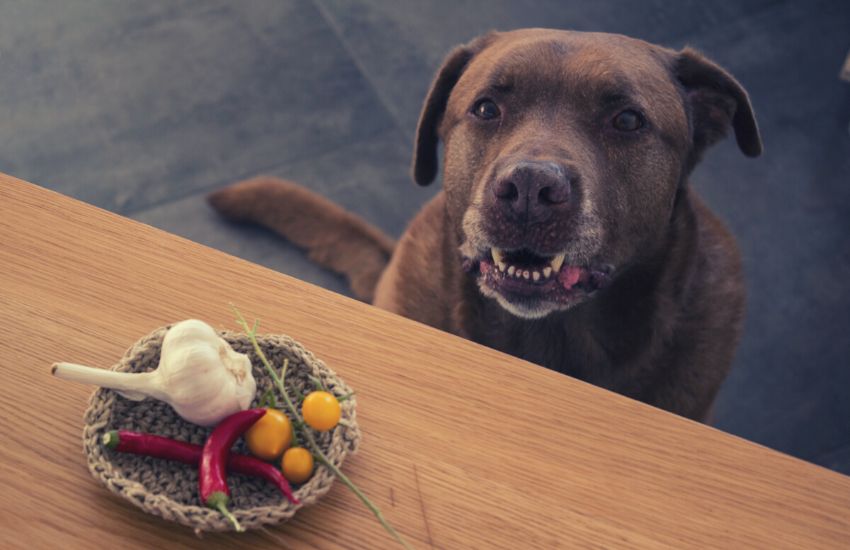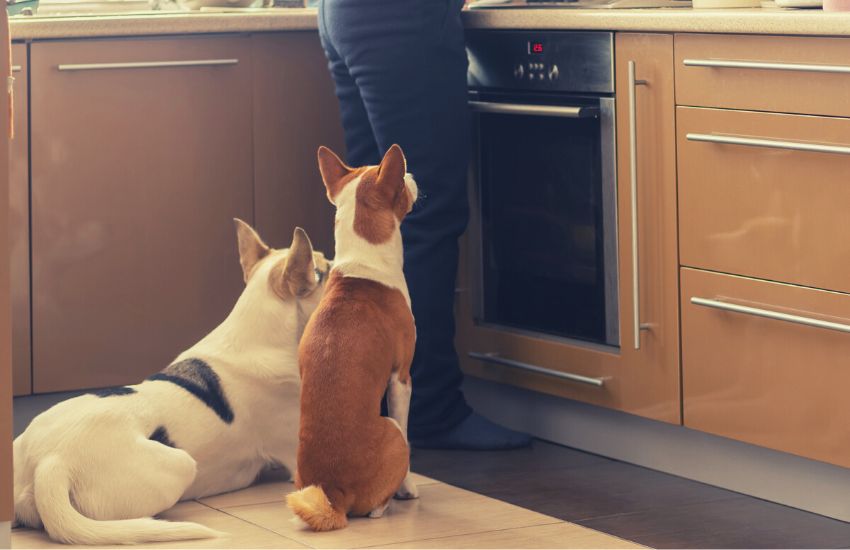shelter pets in need
Each order helps pets in need

Most pet owners can name a few things widely known to be toxic to dogs, such as pesticides, snail bait, macadamia nuts, chocolate (most especially dark chocolate), fatty foods, and antifreeze. We often hear about other ordinary foods or things that are unsafe for dogs and cats, even if they don't come with poison warning labels.
Certain foods, plants, and other household items can also be highly toxic to dogs and other animals. Some of them might surprise you! Here's a list of harmful things or toxic substances for dogs to watch out for that you probably have lying around the house.
Fabric softener sheets harm dogs because they contain cationic ingredients that can cause gastrointestinal irritation, particularly in cats. They are especially dangerous before they are run through the dryer. Ensure your dog and other animals in your house stay away from dryer sheets.
Avocados are bad for dogs because they contain a substance called persin. Avocados may result in an upset stomach in dogs and cats, but the real danger is to birds and rabbits, where ingesting avocados could lead to organ failure and even death. Cats shouldn't eat avocado, either.
Be wary of avocado pits, too, as they may be a choking hazard, especially for bigger dogs.
These two are incredibly unsafe for dogs. They can cause kidney failure if your dogs eat them in large amounts, usually resulting in death. Never share these healthy human foods with your canine companion.

Sugar-free gum, candy, and other sugar-free products that contain an artificial sweetener called xylitol are toxic to dogs. Xylitol rapidly releases insulin in dogs and will cause a sudden onset of severe symptoms, which include vomiting, bleeding, seizures, and death.
It may cause your dog's blood sugar to drop, and liver failure can occur in extreme cases, often becoming life-threatening. If a dog with low blood sugar is left untreated, it can also lead to seizures or a tragic demise.
Let the dough rise somewhere safe from curious dogs if you're making bread or other foods with raw yeast dough, such as handmade soft pretzels. Raw yeast or raw bread dough can expand in your dog's stomach, causing unpleasant gas and bloating.
This can cause your dog's stomach to twist and quickly become a medical emergency. Speaking of "raw," be careful when giving raw meat, raw eggs, and cooked bones to dogs, too, as they can contain bacteria like E. Coli and Salmonella that can cause harm to dogs just like to us, pet owners.

Be careful when sharing salty foods like potato chips or pretzels with your dog. Human food may seem like tasty treats, but a dog eating something with too much salt can lead to liver failure.
Dogs eating foods with salt can experience excessive thirst and urination or even sodium ion poisoning. Signs that your pet may have overeaten of this include diarrhea, abnormal heart rhythm, vomiting, tremors, depression, seizures, elevated body temperature, and even death.
Keep human medication away from your dogs. Dogs may develop severe stomach and intestinal ulcers and red blood cell damage if they ingest medicines like Advil and Tylenol.
If your dog has taken over-the-counter or prescription drugs for humans or if you think your dog may have food poisoning, don't hesitate to get in touch with your veterinarian or ASPCA's Animal Poison Control Center (APCC) Helpline's 24-hour animal poison control hotline at 888-426-4435 immediately!
Alcoholic poisoning is dangerous to us; how much more for our doggos? Even tiny amounts of alcohol have a toxic substance that can cause severe issues to your dog's health. Both ethanol (the intoxicating ingredient in an alcoholic beverage) and hops (the ingredient in beer brewing) can cause alcohol intoxication in dogs.
There you have it; 14 everyday things in your household that could cause harm to your furry companion. If you have a puppy who is always curious and loves to eat or chew up random things in the house, consider giving him dog toys to be busy with.
Get a new leash on life with our my dog is my best friend shirt from our dog tees collection, an adorable way to show off how much you love and care for your family dogs.
Consider these grain-free treat recipes if you're thinking of giving your dogs some treats. As you know, most ingredients in dog treats are not always in commercial dog foods. They're easy to make, so give them a shot!
Some toys contain toxic materials that can threaten your pup's health if chewed or ingested. Be wary of dog toys that include the following:
BPA (bisphenol A) is a hormone-disrupting chemical used to harden plastics that are banned from children's toys but still allowed in pet toys. Avoid plastics marked with the number 7 or "PC" for polycarbonate.
PVC (polyvinyl chloride) is a plastic that releases toxic fumes when chewed. Look for the number 3 or "PVC" marking.
Heavy metals like lead and cadmium are poisonous if ingested, especially by puppies. Some rubber toys, mainly imported ones, have been found to contain heavy metals.
Closely supervise your dog with any toy until the materials are non-toxic. Inspect toys regularly for wear and tear and discard or replace them as soon as they break down.
Providing a safe environment, securing hazardous foods and substances (like antifreeze), and closely monitoring your dog can help prevent accidental poisoning and ensure a long, healthy life for your canine companion. Consulting with your vet on concerns about your canine's diet or substance exposure is always recommended.
Fish food usually isn't harmful to dogs, so don't panic if you think Fido might have accidentally tasted a bit of your goldfish's treats. However, you should still observe your dog and call your vet if your furry friend is acting strange.
Leave a comment